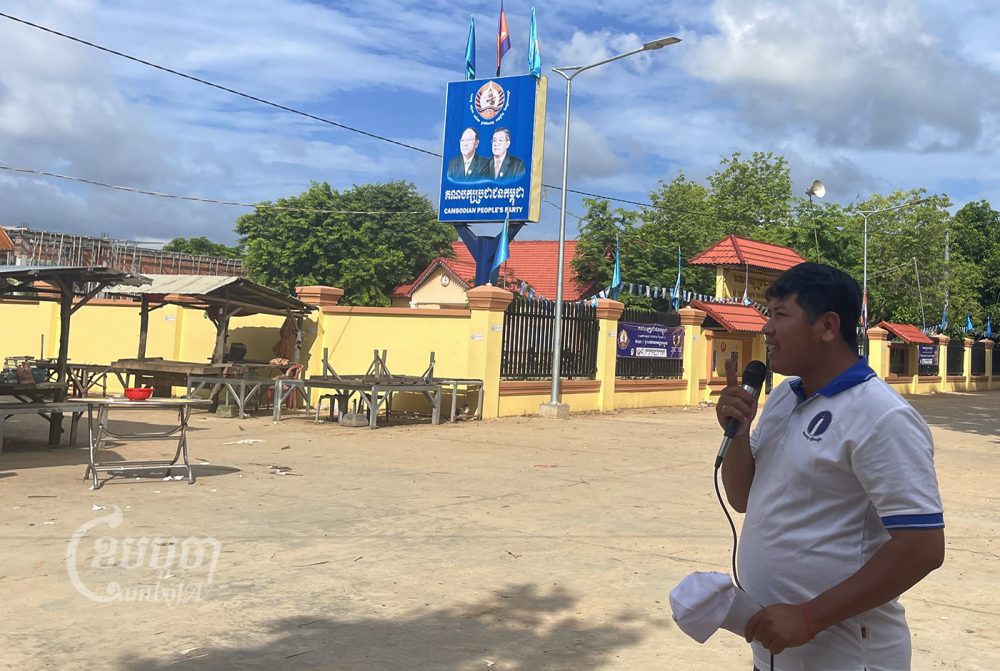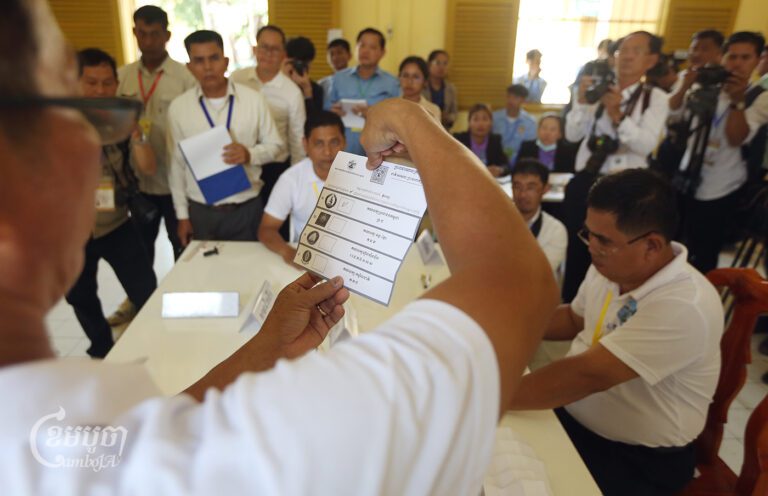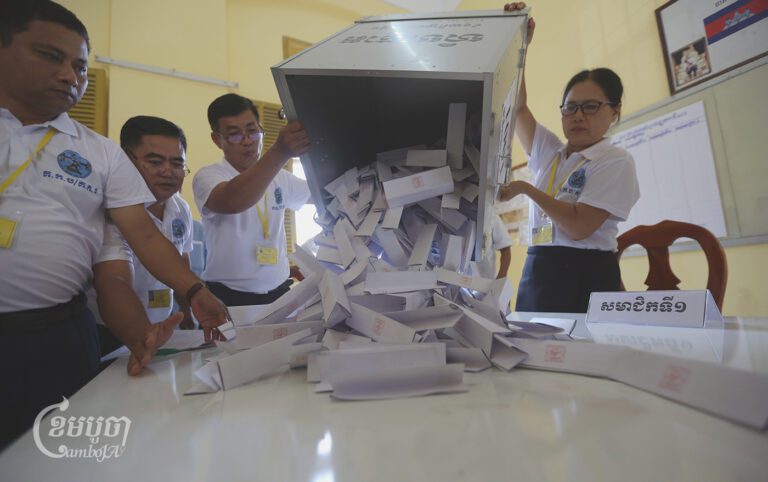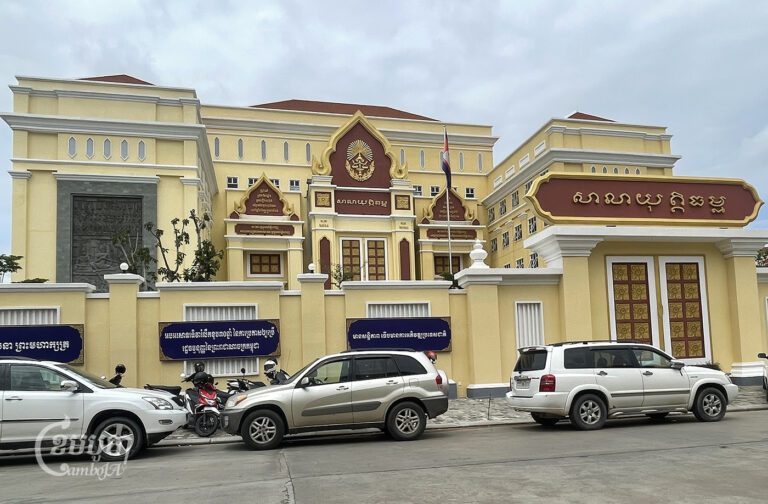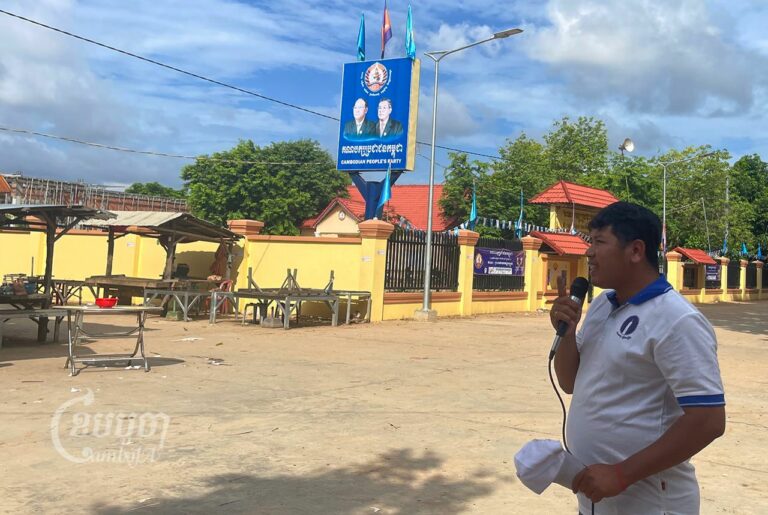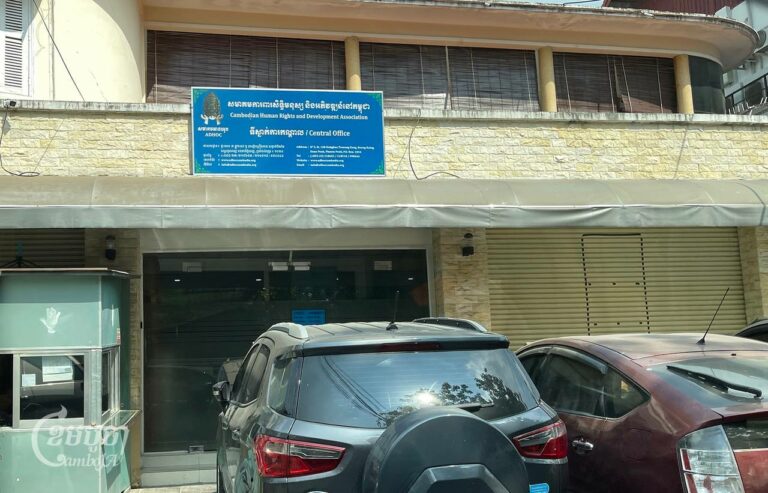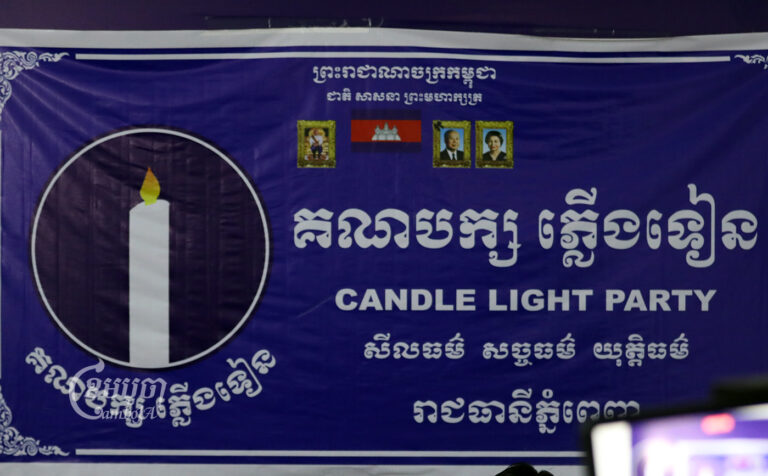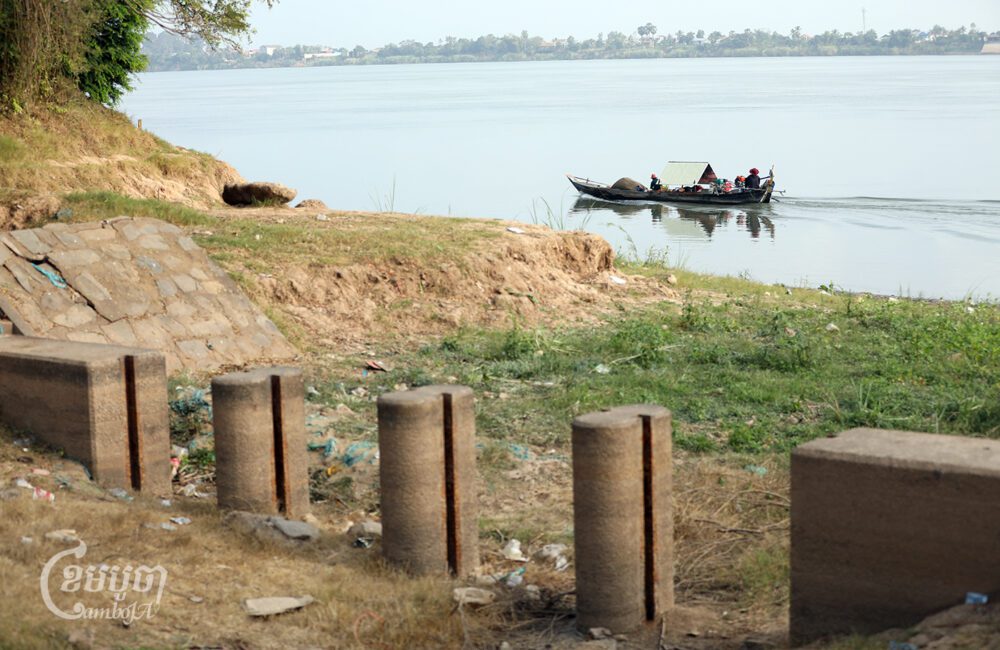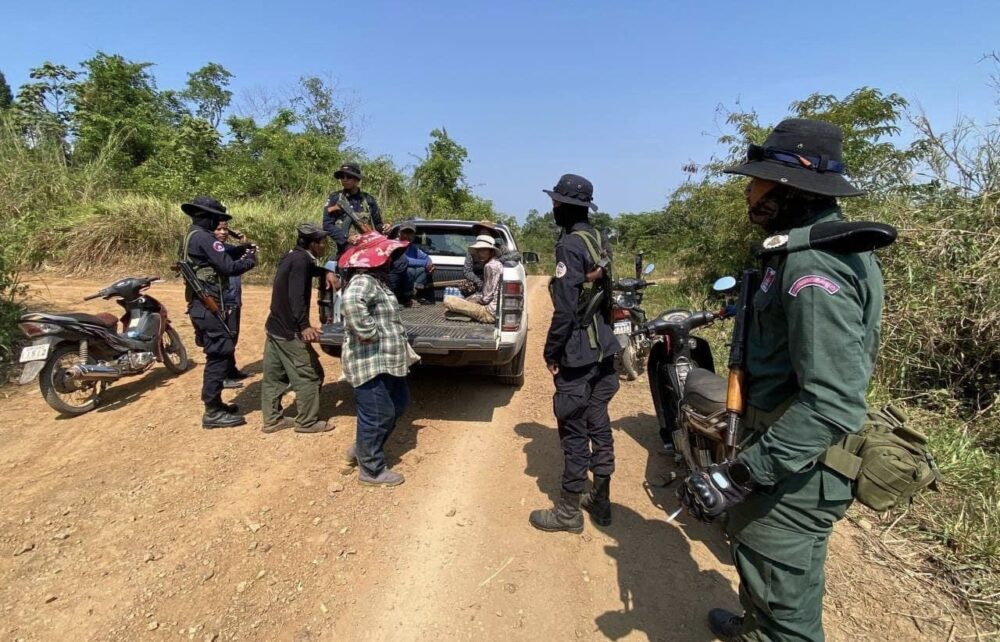Kampong Cham province, Kang Meas district: The activist Kung Raiya, already imprisoned twice on charges related to his politics, is resolute about his decision to stand as a candidate in opposition to a CPP commune chief who flipped his party allegiance after the 2017 election.
At about 8 a.m. Sunday, Raiya led a campaign as a Candlelight Party candidate in the Sdao commune of Kampong Cham province, riding through the streets in a trailer in an effort to drum up support in the June 5 election.
He told reporters he stood by the “seven points” of Candlelight’s policy platform, which describe its approach to local governance. The party has also used a slogan from the court-dissolved CNRP which states a will to “change the commune chiefs who serve the party, and replace them with chiefs who serve the people.”
“The seven points are to meet the peoples’ needs, especially the message that we will hand power to citizens,” Raiya said. “For public service, people are concerned the commune chief has political tendencies, and some are concerned the commune chief charges money for providing services.”
In Sdao commune, there are three political parties contesting the election. These are the ruling CPP, which is ranked number one on the ballot, followed by Candlelight at number two, and finally the Khmer National Love Party.
The CPP has disseminated its own policies through its party offices and distributed leaflets to the public. Its officials have also walked from house to house to show people to mark their ballots to vote for the CPP.
Much of the ruling party’s message has centered on infrastructure development, economic growth and general stability.
The CPP has also petitioned in multiple communes to have its opposition struck from the ballot, pointing to alleged violations of different campaign rules. Kang Meas district, where Sdao commune is located, was one such place where the ruling party sought to have Candlelight candidates eliminated from all 11 communes. Though it was eventually rejected by the provincial election committee, the complaint from the CPP alleged the opposition had committed an infraction while distributing money to councilor candidates.

Raiya told CamboJA he was delighted by the complaint’s rejection. At the same time, he must pay 5 million riels, or about $1,250, for a separate offense related to a post he’d made on Facebook in which he said he’d distributed $100 to commune candidates. The National Election Committee (NEC) said Raiya was being fined for insulting other candidates. Raiya is appealing the decision against him, describing it as “unreasonable.”
“I think it is politically motivated,” he said.
Raiya believes the CPP filed a complaint against him and other candidates because they are worried a majority of voters will support Candlelight, especially since the CNRP won seven of a total of 11 commune seats in 2017.
Yoem Sotheary, head of the Kampong Cham Provincial Election Committee, confirmed the committee has maintained the candidacy of the opposition politicians, but said the fines for Raiya were due to other cases that were posted on social media.
“He was fined because he committed a public insult,” she said.
It is not the first time Raiya’s political speech has landed him in trouble with officials.
He was first arrested in 2015 when he was still a university student over a Facebook post in which he had called for a “color revolution.” For that, he was convicted in 2016 and sentenced to 18 months in jail on charges of incitement.
He was convicted a second time in June 2020 and was handed a two-year sentence on charges of incitement for selling T-shirts bearing the image of slain political analyst Kem Ley.
In Sdao, Raiya will be running against incumbent commune chief Lay Senghong, a former CNRP member who switched to the CPP after the opposition was dissolved in 2017. The ruling party absorbed all of the CNRP’s seats across the country, but allowed Senghong to keep his position.
Now, Senghong is campaigning on a message of infrastructure development and good governance for local people, pointing to installations of solar-powered lights and concrete roads.
“Our message is in telling people to understand party policy, the achievements of the commune,” he said, adding that CPP has lived up to its promises of helping people. “We have made progress in the past, and we promise people that we will continue those policies for 2021 to 2027.”
He said the campaign has presented no challenges so far.

“The Cambodian People’s Party will win with 100 percent [certainly] for this mandate, because I am a commune chief who does not discriminate against people and we have provided public services to all,” he said.
In 2017 commune elections at Sdao commune, the CPP gained 1,112 votes while the CNRP won 1,676 votes. The CNRP won seven chief’s seats in Kang Tanoeng, Kchao, Peam Chikang, Prek Koy, Roka Koy, Soukong and Sdao communes.
In Kchao commune, the former CNRP chief Meas Sam Ol is now running as a candidate for the Candlelight Party.
“In this mandate, I am still hoping to win because people want to change, and they need democracy,” he said. “I served them and people’s hearts still support me.”
Sam Ol said he took office for just three months before he was kicked out when the Supreme Court dissolved the CNRP. The dissolution followed the arrest of party leader Kem Sokha, who was detained in September 2017 for allegedly attempting to launch a so-called color revolution. Both the dissolution and the criminal charge against Sokha are widely seen as politically motivated.

Sam Ol said he was upset to have been removed, as it squandered the will of the public who elected CNRP candidates. Though he was happy to run again, he wasn’t confident that Candlelight could avoid the fate of its predecessor party.
“I think that they will dissolve us again [if we win], because they don’t want to see our presence,” Sam Ol said.
“It seems like they are eating rice, and we have come to take their rice away, so they are not happy with us,” he said.
He said villagers are unhappy with the current commune chief from the ruling party, saying he’s heard complaints of problems with service provision, nepotism, and discrimination along political party tendencies.

Tep Noeun, a 41-year-old villager, said he wants commune chiefs who are willing to serve people’s needs and resolve their challenges to obtain good public services.
“I want to have a good commune chief, honest with citizens and that we can rely on,” he said.
However, Noeun said he has not thoroughly researched the qualifications of candidates from each political party, nor their policies, saying he is busy with his job as a garment worker.


